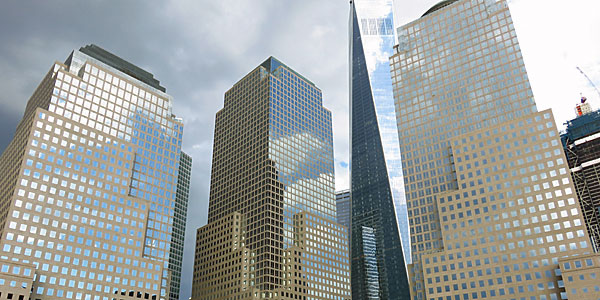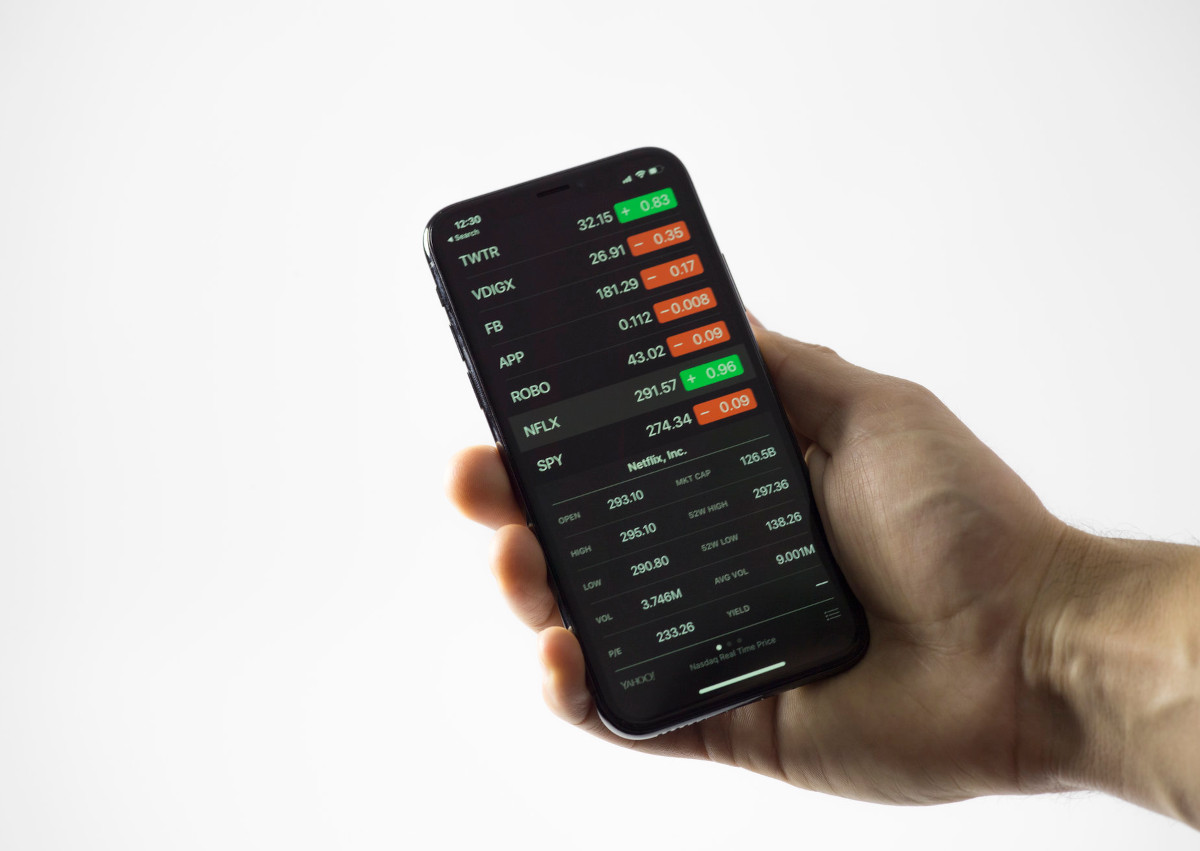(VIANEWS) – Putnam Master Intermediate Income Trust (PIM), Capital Southwest Corporation (CSWC), Pinnacle West Capital Corporation (PNW) are the highest payout ratio stocks on this list.
We have gathered information about stocks with the highest payout ratio so far. The payout ratio in itself isn’t a guarantee of good investment but it’s an indicator of whether dividends are being paid and how the company chooses to issue them.
When researching a potential investment, the dividend payout ratio is a good statistic to know so here are a few stocks with an above 30% percent payout ratio.
1. Putnam Master Intermediate Income Trust (PIM)
466.67% Payout Ratio
Putnam Master Intermediate Income Trust is a closed ended fixed income mutual fund launched and managed by Putnam Investment Management, LLC. The fund is co-managed by Putnam Investments Limited. It invests in the fixed income markets of the United States. The fund invests in bonds of companies operating across diversified sectors. It benchmarks the performance of its portfolio against the Barclays Capital Government/Credit Bond Index. Putnam Master Intermediate Income Trust was formed on April 29, 1988 and is domiciled in the United States.
Earnings Per Share
As for profitability, Putnam Master Intermediate Income Trust has a trailing twelve months EPS of $-0.1.
The company’s return on equity, which measures the profitability of a business relative to shareholder’s equity, for the twelve trailing months is negative -7.87%.
Volume
Today’s last reported volume for Putnam Master Intermediate Income Trust is 63699 which is 11.18% below its average volume of 71721.
Moving Average
Putnam Master Intermediate Income Trust’s worth is below its 50-day moving average of $3.05 and below its 200-day moving average of $3.16.
2. Capital Southwest Corporation (CSWC)
137.42% Payout Ratio
Capital Southwest Corporation is a business development company specializing in credit and private equity and venture capital investments in middle market companies, mezzanine, later stage, mature, late venture, emerging growth, buyouts, recapitalizations and growth capital investments. It does not invest in startups, publicly traded companies, real estate developments, project finance opportunities, oil and gas exploration businesses, troubled companies, turnarounds, and companies in which significant senior management is departing. In lower middle market, the firm typically invests in growth financing, bolt-on acquisitions, new platform acquisitions, refinancing, dividend recapitalizations, sponsor-led buyouts, and management buyouts situations. The investment structures are Unitranche debt, subordinated debt, senior debt, first and second lien debt, and preferred and common equity. The firm makes equity co-investments alongside debt investments, up to 20% of total check and only makes non-control investments. It prefers to invest in Industrial manufacturing and services, value-added distribution, healthcare products and services, business services, specialty chemicals, food and beverage, tech-enabled services and SaaS models. The firm seeks to invest in energy services and products, industrial technologies, and specialty chemicals and products. Within energy services and products, the firm seeks to invest in each segment of the industry, including upstream, midstream and downstream, excluding exploration and production with a focus on differentiated products and services, equipment and tool rental, consumable products, and drilling and completion chemicals. Within industrial technologies, it seeks to invest in automation and process controls, handling and packaging equipment, industrial filtration and fluid handling, measurement, monitoring and testing, professional tools, and sensors and instrumentation. Within and specialty chemicals and products, the firm seeks to invest in businesses that develop and manufacture highly differentiated chemicals and products including adhesives, coatings and sealants, catalysts and absorbents, cosmeceuticals, fine chemicals, flavors and fragrances, performance lubricants, polymers, plastics and composites, chemical dispensing and filtration equipment, professional and industrial trade consumables and tools, engineered solutions for HVAC, plumbing, and electrical installations, specified high performance materials for fire protection and oilfield applications. It may also invest in exceptional opportunities in building products. The firm seeks to invest in the United States. The firm seeks to make investments ranging from $5 to $25 million in securities. It seeks to make equity investments up to $5 million and debt investments between $5 million and $20 million and co-invest in transaction size upto $40 million. It prefers to invest in companies with revenues approaching above $10 million, profitable operations, historical growth rate of at least 15 percent per year. . Within the lower middle market, it seeks to invest in with less than $15 million in EBITDA and also opportunistically invests in the upper middle market, generally defined as companies with EBITDA in excess of $50 million. In addition to making direct investments, the firm allocates capital to syndicated first and second lien term loans in the upper middle market. Criteria for Upper Middle Market Syndicated 1st Lien is EBITDA Size more than $30 million, Closing Leverage greater than 4 times, investment hold size between $5 million and $7 million, investment yield greater than 6.5%. Criteria for Upper Middle Market Syndicated 2nd Lien is EBITDA Size more than $50 million, Closing Leverage greater than 6 times, investment hold size between $5 million and $7 million, investment yield greater than 9%. It prefers to take a majority and minority stake. The firm has the flexibility to hold investments for very long period in its portfolio companies. It may also invest through warrants. The firm prefers to take Board participation in its portfolio companies. Capital Southwest Corporation was founded on April 19, 1961 and is based in Dallas, Texas.
Earnings Per Share
As for profitability, Capital Southwest Corporation has a trailing twelve months EPS of $1.63.
PE Ratio
Capital Southwest Corporation has a trailing twelve months price to earnings ratio of 13.12. Meaning, the purchaser of the share is investing $13.12 for every dollar of annual earnings.
The company’s return on equity, which measures the profitability of a business relative to shareholder’s equity, for the twelve trailing months is 11.92%.
Sales Growth
Capital Southwest Corporation’s sales growth for the current quarter is 63.6%.
Revenue Growth
Year-on-year quarterly revenue growth grew by 59.6%, now sitting on 153.1M for the twelve trailing months.
Volume
Today’s last reported volume for Capital Southwest Corporation is 1608460 which is 442.8% above its average volume of 296325.
Moving Average
Capital Southwest Corporation’s value is under its 50-day moving average of $21.98 and higher than its 200-day moving average of $19.81.
3. Pinnacle West Capital Corporation (PNW)
96.5% Payout Ratio
Pinnacle West Capital Corporation, through its subsidiary, Arizona Public Service Company, provides retail and wholesale electric services primarily in the state of Arizona. The company engages in the generation, transmission, and distribution of electricity using coal, nuclear, gas, oil, and solar generating facilities. Its transmission facilities include overhead lines and underground lines; and distribution facilities, as well as owns and maintains transmission and distribution substations. The company was incorporated in 1985 and is headquartered in Phoenix, Arizona.
Earnings Per Share
As for profitability, Pinnacle West Capital Corporation has a trailing twelve months EPS of $3.57.
PE Ratio
Pinnacle West Capital Corporation has a trailing twelve months price to earnings ratio of 20.66. Meaning, the purchaser of the share is investing $20.66 for every dollar of annual earnings.
The company’s return on equity, which measures the profitability of a business relative to shareholder’s equity, for the twelve trailing months is 6.99%.
Growth Estimates Quarters
The company’s growth estimates for the present quarter and the next is 15.3% and 90.5%, respectively.
Earnings Before Interest, Taxes, Depreciation, and Amortization
Pinnacle West Capital Corporation’s EBITDA is 45.65.
Moving Average
Pinnacle West Capital Corporation’s value is below its 50-day moving average of $75.97 and below its 200-day moving average of $77.88.
Yearly Top and Bottom Value
Pinnacle West Capital Corporation’s stock is valued at $73.77 at 04:23 EST, way below its 52-week high of $86.03 and way higher than its 52-week low of $66.63.
4. Eastman Chemical Company (EMN)
52.87% Payout Ratio
Eastman Chemical Company operates as a specialty materials company in the United States and internationally. The company's Additives & Functional Products segment offers hydrocarbon and rosin resins; organic acid-based solutions; amine derivative-based building blocks; metam-based soil fumigants, thiram and ziram based fungicides, and plant growth regulators; specialty coalescent, specialty and commodity solvents, paint additives, and specialty polymers; heat transfer and aviation fluids; insoluble sulfur and anti-degradant rubber additives; and performance resins. It serves transportation, personal care, wellness, food, feed, agriculture, building and construction, water treatment, energy, consumables, durables, and electronics markets. Its Advanced Materials segment provides copolyesters, cellulosic biopolymers, cellulose esters, polyvinyl butyral (PVB) sheets, and window and protective films, and aftermarket applied film products for value-added end uses in the transportation, durables, electronics, building and construction, medical and pharma, and consumables markets. The company's Chemical Intermediates segment offers methylamines and salts higher amines and solvents; Olefin and acetyl derivatives, ethylene, and commodity solvents; and primary non-phthalate and phthalate plasticizers, and niche non- phthalate plasticizers to the industrial chemicals and processing, building and construction, health and wellness, and agrochemicals. Its Fibers segment provides cellulose acetate tow, triacetin, cellulose acetate flake, acetic acid, and acetic anhydride for use in filtration media primarily cigarette filters; natural and solution dyed acetate yarns for use in consumables, and health and wellness markets; and wet-laid nonwoven media, specialty and engineered papers, and cellulose acetate fibers for transportation, industrial, agriculture and mining, and aerospace markets. Eastman Chemical Company was founded in 1920 and is headquartered in Kingsport, Tennessee.
Earnings Per Share
As for profitability, Eastman Chemical Company has a trailing twelve months EPS of $5.92.
PE Ratio
Eastman Chemical Company has a trailing twelve months price to earnings ratio of 12.26. Meaning, the purchaser of the share is investing $12.26 for every dollar of annual earnings.
Revenue Growth
Year-on-year quarterly revenue growth declined by 16.3%, now sitting on 9.38B for the twelve trailing months.
1. 1 (1)
1% Payout Ratio
1
Earnings Per Share
As for profitability, 1 has a trailing twelve months EPS of $1.
PE Ratio
1 has a trailing twelve months price to earnings ratio of 1. Meaning, the purchaser of the share is investing $1 for every dollar of annual earnings.
The company’s return on equity, which measures the profitability of a business relative to shareholder’s equity, for the twelve trailing months is 1%.





